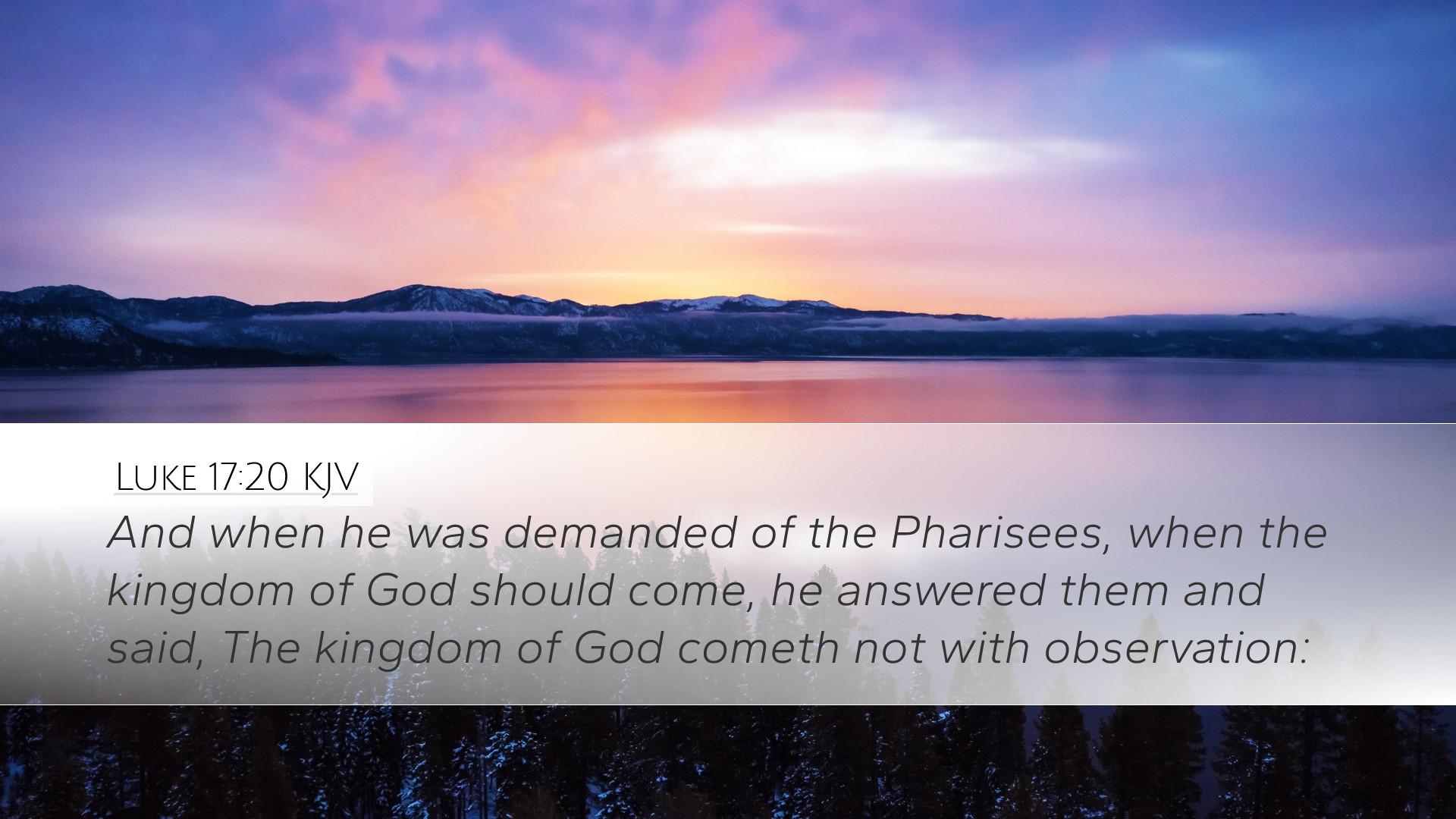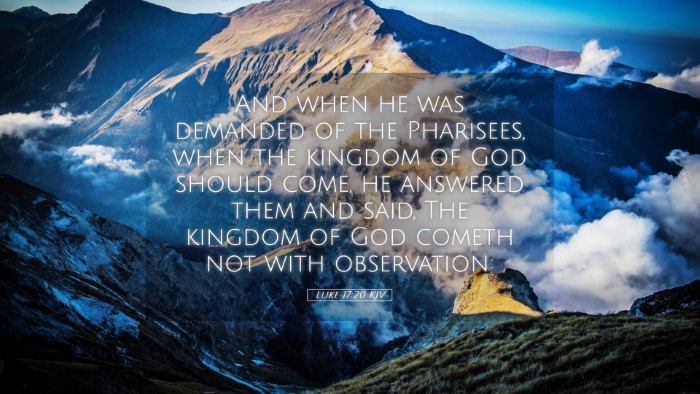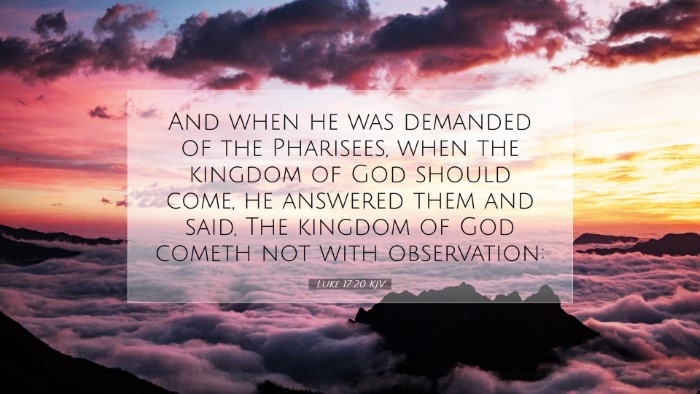Commentary on Luke 17:20
Verse Text: "And when he was demanded of the Pharisees, when the kingdom of God should come, he answered them and said, The kingdom of God cometh not with observation."
Introduction
The inquiry posed by the Pharisees in Luke 17:20 reveals their misunderstanding of the kingdom of God. This verse serves as a profound reminder of the nature of God's kingdom, which transcends earthly expectations and observations. Here we will explore various insights derived from notable public domain commentaries, thereby elucidating the theological and practical implications of Jesus' response.
Exegesis of the Text
"The kingdom of God cometh not with observation."
Meaning of "Observation"
Albert Barnes notes that the term "observation" suggests visible signs or external displays. The Pharisees expected a tangible, political Messiah who would establish an earthly kingdom. Jesus' statement indicates that the essence of the kingdom is not marked by worldly phenomena but is instead rooted in divine authority and spiritual reality.
The Nature of God’s Kingdom
Matthew Henry elaborates that the kingdom of God is not merely about outward appearances or political dominion. Rather, it encompasses the reign of God in the hearts of believers, manifesting through righteousness, peace, and joy in the Holy Spirit (Romans 14:17). This internal reality is often invisible to the naked eye yet is profoundly impactful in the lives of those who are part of God's kingdom.
Contrasting Expectations
Adam Clarke highlights the stark contrast between the Jewish expectations of a nationalistic ruler and Jesus' proclamation of a spiritual kingdom. The Pharisees were searching for observable signs as a means to confirm their beliefs. However, Jesus emphasizes that the true nature of His kingdom is inward, transforming lives rather than merely altering political landscapes.
- Earthly Kingdom: Political, visible, and external.
- Heavenly Kingdom: Spiritual, internal, and transformational.
Theological Implications
This verse invites us to consider the implications of God's kingdom on our lives today. It challenges the church to focus on spiritual transformation rather than mere societal or political gains. Strong reminders from our commentators suggest that:
- The kingdom of God is a present reality in the lives of believers.
- It grows quietly, often unnoticed, through the work of the Holy Spirit.
- Our engagement with the kingdom should be rooted in spiritual disciplines, fostering deeper communion with God.
The Kingdom Within You
In Further clarification, Jesus continues in the verse that even the presence of the kingdom might not be externally visible. This concept is captured poignantly in Clarke's commentary, where he suggests that the kingdom of God manifests in the hearts of individuals, emphasizing a personal relationship with God through faith and obedience.
Practical Applications
As pastors, students, theologians, and scholars engage with this text, several practical applications arise:
- Encourage Inner Transformation: The church must lead individuals to understand and seek the inner workings of God's kingdom rather than merely waiting for external signs.
- Foster Community that Reflects Kingdom Values: Believers are called to create communities that embody the values of righteousness, peace, and joy.
- Teach the Nature of God’s Reign: Educators should communicate that the sovereignty of God is at work in surprising, often unseen ways in the believer's life.
Conclusion
Luke 17:20 explicitly reflects the profound theological truth that the kingdom of God is not something to be observed in a material sense but is instead experienced spiritually through faith. This commentary, informed by Matthew Henry, Albert Barnes, and Adam Clarke, invites a deeper exploration of what it means to be part of God's kingdom today.
As we study this passage, may we reflect on its implications, encouraging ourselves and others to recognize the transformational power of God's reign in our lives and communities.


